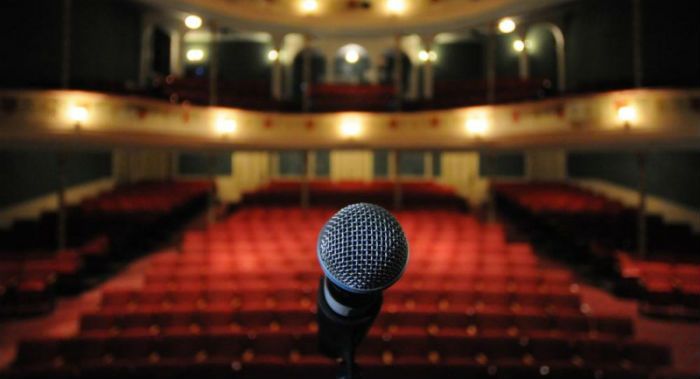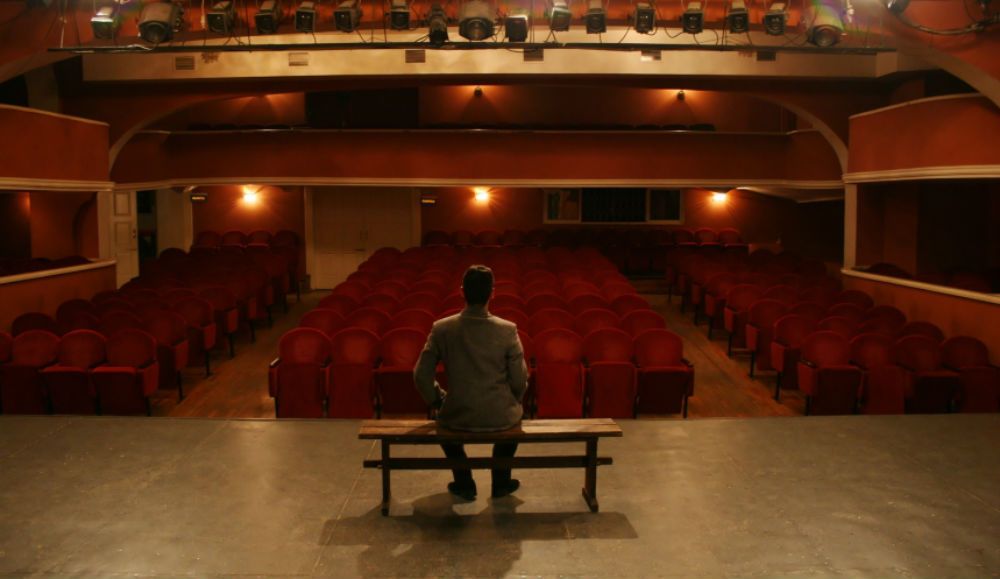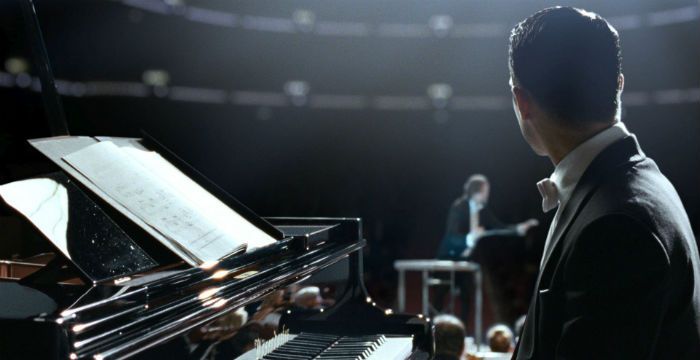Are you experiencing racing pulse and rapid breathing, dry mouth and tight throat, trembling hands, knees, lips, and voice, sweaty and cold hands, nausea and an uneasy feeling in your stomach, and vision changes? Are you also onstage or on a podium for an audition, a performance, a recital or also a public speech?
Well, this is a case of stage fright, my dear.
“Can I get rid of it for good?” you may ask. Well, since it’s much more than something that’s “all in your head,” we cannot say it will vanish overnight. In fact, performance anxiety actually happens when you focus on yourself and your anxiety rather than on your performance or presentation. What’s more, it originates in your tendency to resist and fight it rather than to work with it.
That’s where we chime in, giving you a series of smart, yet funny pieces of advice.
Avoid wasting your time with any of the following funny, useless remedies
If possible, do not chug litres and gallons of chamomile tea. Yes, its relaxing properties are well known, but, on the other hand, performing with a full bladder is one of the most discomforting sensations you might ever experience. Do you want to run to the gents’ halfway through an aria, as in “Dilegua notte, tramontate stelle, tramontate ste…Sorry I’ll be right back?”
Some people believe that eating bananas, high in potassium, and turkey, which contains the amino acid tryptophane, will make you sleepy and thus, more relaxed: well not only is there no research evidence of reduced performance anxiety, but also, would you really eat a meal consisting of chamomile, bananas and turkey before an audition? Best case scenario, you’ll experience a food coma. Worst case scenario, you will be sick onstage.
Also, please, don’t deprive yourself of sleep the night before an important performance or audition: you won’t balance out your levels of adrenaline. You will just feel cranky, tired and, most of all, anxious.
Shift your focus

Remember one thing: it’s about the performance, it’s not about YOU. The people in the audience are not here to see or hear you, unless your friends and your relatives are present too. They’re just here to see a performance, and, this day, the performer happens to be you. We might sound cynical here but they hardly care about YOU as a person—did you hear that, members of the Me Me Me generation? Not making it a personal matter will help you detach from the situation and approach it in a more relaxed way.
Accept it, don’t fight it
Do you remember that, in Frozen, Elsa’s parents tell her to “conceal it, don’t feel it?” And I bet you do remember the outcome of it very well. Allow yourself to work with anxiety, and not against it: this way, you will be able to calm down and proceed. Otherwise, it’s like attempting to take a stretch with contracted muscles because, somehow, you are trying to fight the unpleasantness of the pulling sensation in the muscles while holding a stretching position: well, let use tell you this: it will hurt much much more.
Understand it
We are scientifically, and biologically wired to worry about reputation. After all, we are social animals. Mind the “animal” part. The fear of being perceived as an idiot is a threat reaction, which makes stage fright a type of fight-or-flight response, and this is a characteristic that we share with other animal species. So according to the “ancient laws of the jungle,” your brain knows that, when facing any kind of threat, you either run for your life or fight till death.
Oh, and don’t you hate it when people say it’s all in your head? Well, stage fright is Not, as it is a full-blown hormonal reaction.The Hypothalamus triggers the pituitary gland to secrete ACTH hormones, which in turn makes your adrenal glands pump adrenaline to your blood.
Don’t get rid of it altogether
Actually, the brain does need a low level of adrenalines to be at its best. That’s the argument of John Phillips, MD, who maintained that no anxiety whatsoever is as bad as too much adrenaline. In fact he explained that, whether operating on the aorta or playing the cello, one must be constantly aware of problems yet to happen in order to best adapt to changes as they occur. He then drew the example of pianist Ignaz Solzhenitsyn, who, while playing Bach’s English Suites, stumbled upon a stuck key (The A flat) on his piano. He tried to free it, but to no avail, so, regardless of how dramatic the situation was, he kept on playing flawlessly, with the exception every A-flat key in the work
Breathe Diaphragmatically!
Especially if you want to talk or sing or act, you need to breathe, and, since you need to do these things calmly, you need to breathe diaphragmatically.
Practice!

Practicing a task increases familiarity and reduces anxiety. If you know what you’re saying, you’ll feed the crowds with your energy and keep the activity of the hypothalamus at bay. Also, try to go onstage as frequently as possible, get used to the setting and the conditions that trigger your anxiety.



